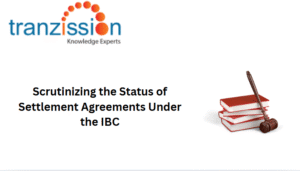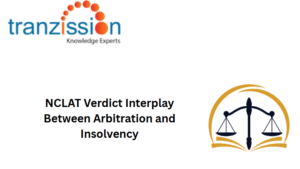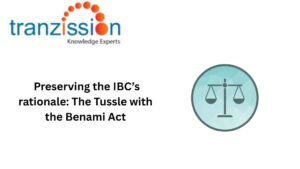
Importance of Continuous Education for Insolvency Professionals

Table of Contents
The insolvency sector is dynamic and constant evolving, with changes in legislation, market conditions, and best practices shaping how professionals operate. Continuous Education for Insolvency Professionals also stay effective, compliance and competitive. This article explores why ongoing professional development is crucial and offers strategies to help professionals thrive in their careers.
Why Continuous Learning is Essential for Insolvency Professionals
IPs need to maintain a high level of expertise across legal, financial, and operational aspects of insolvency proceedings. Therefore, Education for Insolvency Professionals because:
The Evolving Nature of Insolvency Law & Regulations:
Insolvency laws and reqgulations frequently evolve to address economic challenges and market trends. Frequent amendments to the Insolvency and Bankruptcy Code, 2016 (IBC), the introduction of new resolution mechanisms, and judicial interpretations necessitate Education for Insolvency Professionals. For instance, pre-packaged insolvency resolution process (PPIRP) and cross-border insolvency framework under sections 234 and 235 require professionals to understand new legal provisions and apply them to real-life scenarios.
Read more : Insolvency Challenges in E-Commerce Sector
Increasing Complexity of Corporate Distress Cases:
Economic conditions and industry trends influence the types of insolvency cases that arise, and continuous learning enables professionals to anticipate and respond effectively to these changes. IPs handle high-stake cases, including cross-border insolvency matters, sector-specific insolvencies, like real estate, mirco, small, and medium enterprises (MSMEs), and the understanding the link of IBC with Securities Exchange Bank of India (SEBI) and tax authorities. Without updated knowledge, IPs risk inefficiency and legal non-compliance so its Education for Insolvency Professionals is important
Ethical & Professional Responsibility Under IBBI Guidelines:
Distressed companies and experts value professionals who demonstrate a commitment to staying current in their field. The Insolvency and Bankruptcy Board of India (IBBI) mandates professional competence through structured Continuing Professional Education (CPE). Failure to stay updated may lead to professional negligence and penalties.
Regulatory Framework for Continuous Learning in the Insolvency Profession
The IBBI has guidelines for CPE for IPs and Registered Valuers, which requires IPs to complete structured learning programs to maintain their licenses. As per these guidelines, IPs must adhere complete at least 10 credit hours of CPE each year and complete at least 60 credit hours of CPE every 3 years. Further, it requires that IPs must complete any backlog of CPE hours before applying to have their registration or authorisation renewed and must complete CPE even if their registration is suspended. It establishes mandatory training programs and refresher courses ,participation in industry seminars, webinars, and conferences and case study-based learning from landmark insolvency resolutions.
Suggested reading : The Insolvency of State-owned Enterprises
Strategies for Continuous Learning & Skill Enhancement for Insolvency Professionals
For IPs in India to maintain a high level of competency continuous learning strategies should include:
Enrolling in Certified Insolvency Training Programs:
IPs should pursue specialised certifications in areas like corporate restructuring, valuation, liquidation, and distressed asset management. IPs can attend certified insolvency training programs by the IBBI, the Institute of Chartered Accountants of India (ICAI), and the National Institute of Securities Markets (NISM), which provide structured courses on corporate restructuring, liquidation, and dispute resolution.
Attending Industry Seminars & Webinars:
Attending national and international insolvency conferences can help IPs to stay updated of emerging trends and best practices. The engagement with insolvency forums, such as the International Intellectual Property Institute (IIPI), INSOL India, and IBBI conferences, enhances knowledge of real-time industry developments.
Case Study-Based Learning from High-Profile Insolvency Resolutions:
It is crucial for IPs to review Supreme Court, High Courts, National Company Law Appellate Tribunal (NCLAT), and the National Company Law Tribunal (NCLT) judgements on IBC cases helps professionals understand evolving judicial trends.
Leveraging Technology & Digital Learning Platforms:
Artificial intelligence and other advanced technology can be beneficial for IPs to research. In addition to this, online learning platforms, like Coursera, Udemy, LexisNexis, provide access to global insolvency practices, enhancing their knowledge and expertise.
Challenges in Implementing Continuous Learning for Insolvency Professionals
Lack of Awareness About IBBI Learning Mandates:
Many professionals remain unaware of CPE requirements, risking non-compliance.
Limited Availability of Specialized Insolvency Courses:
There is a need for more advanced training on cross-border insolvency, forensic audits, and digital asset liquidation, due to increasingly complexity of global business transactions, the prevalence of digital asstets, and the potential for fraudulent activities across jurisdictions. If IPs do not have the specialised knowledge to effectively manage and resolve complex insolvency cases or the skills required to investigate financial irregularities and liquidate digital assets when necessary, it may lead to inefficiency in handling cases.
Time Constraints & Workload Management:
When IPs handle high case volumes it makes it difficult to allocate time for learning. Insolvency cases
Future Trends in Insolvency Professional Education
The insolvency sector is dynamic, with changes in legislation, market conditions and best practices. For their further Education for Insolvency Professionals, IPs can look forward to integrating AI and data analytics in learning. Predictive analytics & AI-driven case assessments will be integral to future insolvency training programs. Along with emerging international frameworks, such as UNCITRAL Model Law on Cross-Border Insolvency and the European Union on Insolvency Regulations require IPs to develop global expertise. In conclusion, future insolvency education will include training on AI-powered resolution platforms and e-filing and automation in insolvency cases.
Conclusion
Continuing professional education is important for IPs because it helps them stay current and provide high-quality services. It will also help IPs anticipate and respond to changes in the economy and industry as they will develop their technical skills in financial analysis, case management, and stakeholder negotiation.





